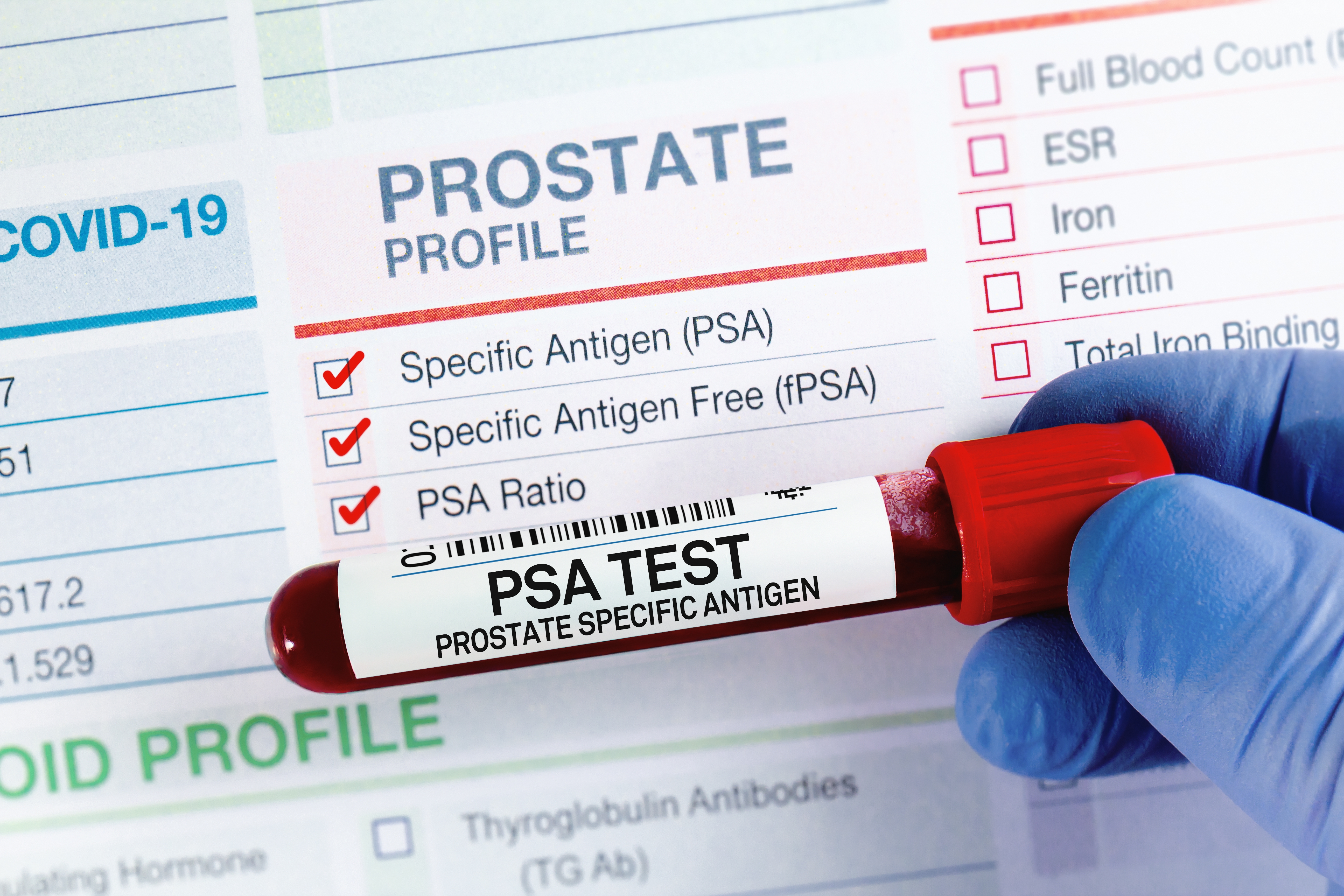WONDERING HOW TO DETECT PROSTATE CANCER?
The PSA test can help detect prostate cancer. PSA stands for prostate-specific antigen, which is a protein our bodies make in healthy functioning cells of the prostate gland, as well as those that are malignant (diseased).
WHY SHOULD YOU HAVE YOUR PSA TESTED?
We test your PSA to look for elevated levels. An elevated PSA in the blood can be an indicator of prostate cancer. The blood evaluation is performed by drawing blood labs and is done in conjunction with a digital rectal exam to evaluate for other cancerous symptoms of the prostate. It is important to know that prostate cancer can be present in healthy males that do not have any symptoms.
WHAT IS CONSIDERED A NORMAL PSA LEVEL?
PSA levels can vary amongst individuals. Age, activity and genetics can play a role in those variances. As a benchmark most physicians will use a PSA level of 4.0 ng/mL and lower as being normal. If levels are above 4.0 ng/mL, we recommend a prostate biopsy. Keep in mind this is a guideline, as lower than “normal” PSA by itself does not mean an absence of cancer or eliminate cause for further testing.
DO ALL ELEVATED PSA LEVELS MEAN A CANCEROUS CONDITION?
No. Certain conditions can exist independently, as well as in conjunction with prostate cancer. Some of these include a condition known as prostatitis (Inflammation of the prostate), BPH (benign prostatic hyperplasia, which means an enlarged prostate) as well as UTI’s (urinary tract infections). Testing levels after procedures such as a prostate biopsy or surgery can cause an elevation as well.
DO ALL NORMAL OR LOW PSA LEVELS MEAN A PROSTATE IS HEALTHY?
Not always. Similar to certain procedures and genetics that can increase a PSA reading, there are factors that can lower a PSA level, masking a potentially harmful condition. Medications such as Finasteride and Dutasteride, commonly used to treat BPH, have been found to lower PSA levels.
WHAT HAPPENS AFTER I’VE HAD MY PSA TESTED?
The lab takes approximately one week to analyze the PSA levels. We will schedule a follow up consult with you to review results. Education about any further recommendations of care will be discussed. Some of these recommendations may include continued PSA and DRE testing to monitor conditions, an ultrasound, x-ray, biopsy or cystoscopy (direct visualization of the prostate using fiber optic camera technology.)
PSA BLOOD TEST
The prostate-specific antigen (PSA) blood test is one way to screen for prostate cancer. This blood test measures the level of PSA in the blood. PSA is a protein made only by the prostate and prostate cancer. The test can be done in a lab, hospital or healthcare provider’s office.
Very little PSA is found in the blood of a man with a healthy prostate. A low PSA is a sign of prostate health. A rapid rise in PSA may be a sign that something is wrong. Prostate cancer is the most serious cause of a high PSA result. Another reason for a high PSA can be benign (non-cancer) enlargement of the prostate. Prostatitis, inflammation of the prostate, can also cause high PSA results.
A rise in PSA level does not tell us the type of cancer cells present. The rise tells us that cancer may be present.
Talk with your healthcare provider about whether the PSA test is useful for you. If you decide to get tested, be sure to talk about changes in your PSA score with your provider and make sure to watch our video on the PSA Blood test.


